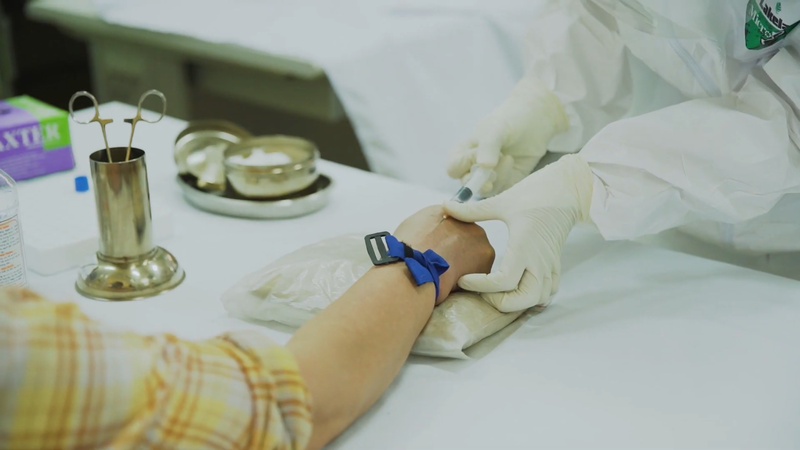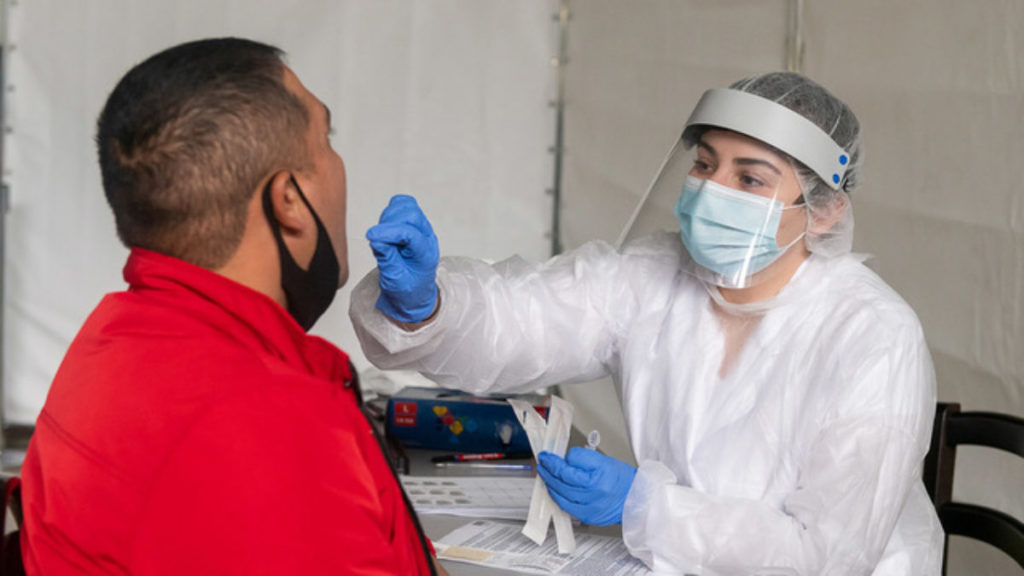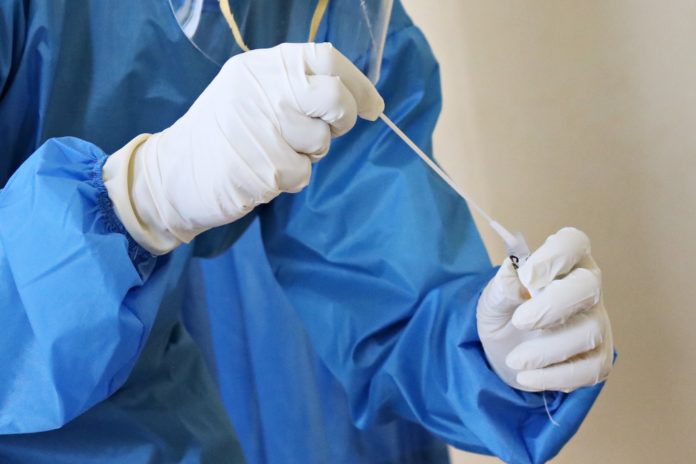Moratwe Mosima is a recent medical graduate, and is currently completing her internship at the Charlotte Maxeke Academic Hospital in Parktown, Johannesburg. She describes her experience at one of Gauteng’s hardest hit public hospitals, right after obtaining her qualification. by HLONI MANARE
The difference between working in hospitals as a medical student and working in a hospital as a medical intern.

“As students, we were not allowed to work with Covid-19 patients. Universities tried to make sure that we were not in contact with Covid-19 positive patients, but it was not 100% effective because a lot of the time we were only informed days later that you interacted with a [Covid-19] positive patient,” Mosima said.
There was such a big shift from working and studying in separate parts of a hospital, to working in a large hospital, and in many departments.
Mosima says that working at one of Gauteng’s busiest Covid-19 hospitals does not guarantee health worker safety, leaving it up to them to ensure that they are able to assist patients while protecting themselves.
“Working as a new doctor, the biggest difference is that there is no safety net. You are now a working individual and no one is liable for your health and safety, except for yourself. So, it falls on you to protect yourself to make sure that if you do contract Covid, you are covered,” said Mosima.
Personal protective equipment (PPE)
“PPE is also very complicated to wear, it’s not just scrubs anymore. You’re wearing something else underneath and on top of that, you need to wear shoe covers and disposable scrubs, then you wear a specific coat that covers that, along with two pairs of gloves. You finish off with a N95 mask, not a normal surgical mask, and a face shield,” she said.
Then, after a long day at work, you still need to take all of that off. There’s a specific order to taking everything off, while remembering to sanitise as you take off each layer. It takes approximately 10 minutes to put this kit on and 30 minutes to take it off, added Mosima.
“You cannot rush these steps, you cannot risk it because at the same time, it’s your health on the line.
I think there is always that little bit of fear, going into hospital everyday, because I see it as walking right into the eye of the storm,” she said.
“It’s a lot more terrifying than, say, walking into a grocery store. At least you know that you have a 50/50 chance of contracting Covid-19 there. Whereas working in a Covid-19 ward, you walk in knowing that the people you could be interacting with definitely have Covid-19.
You have to interact with them, you have to touch them, you have to help them, because that is your job.”

First day at work, anxiety and solid support
“The first time I had to work in a Covid-19 ward was actually the first day on the job, and I was thinking, ‘It’s the first day of work and the first thing I am doing as a newly qualified health worker is working in a Covid-19 ward’.
I was so anxious that day and I remember I got home and went to go and take a shower and took off everything I wore and left it outside and sanitised, and that whole day, I just thought I had Covid-19 symptoms. Your mind will play tricks on you, after being busy the first day, attending to Covid-19 patients, she said.
I am currently still living with my parents, and it’s been harder coming home, knowing that I’ve been swabbing patients and I might have been exposed to people that tested positive. I always ask myself, “Was I actually adequately protected at the time?” And I don’t remember because I am always busy with patients.”
According to Mosima, health care workers often have to take over when one of their colleagues fall ill or have to isolate, placing the burden on the remaining staff.
“In my group of doctors, which is 12 of us. Two of my colleagues have tested positive for covid and so because they have to isolate, we have to take over their work, so, you are doing almost double the work,” she said.
It is so important to know that there is a support structure lifting you up, she said.
“As intern doctors, we are all in the same position and I think that helps a lot. We all carry each other through the day and understand that teamwork and cooperation helps us do our work efficiently,” said Mosima.

Reality Check
“I think a lot is facing medical interns, going into hospitals where people are coming in really sick and some are dying everyday of Covid-19, mostly alone. One of our graduates had just begun working and she suddenly died of Covid-19. She was such a young and healthy doctor.,”
Mosima says that by being a health care worker, there is extra caution to be taken when interacting in public.
“Coming into the health sector as a recently qualified health care worker during these times, you need to protect yourself and others, like not going out as much as before, seeing friends and family without being 100% sure that you are Covid negative,” she said.
Being a doctor now, or rather starting my career during these times, one thing I learned is that nothing is guaranteed, she added.
When I started studying medicine, I would have never thought that I would start working during a pandemic and doing the things we only read about in history books about pandemics. And with all of that actually happening right now. I always wonder if I would have still chosen to be a medical practitioner.
“I think that these times remind me of why I chose to be a healthcare professional: to heal and save lives.”
Moratwe Mosima is a recent MBChB graduate from Stellenbosch University and is currently completing her two-year medical internship at the Charlotte Maxeke Academic Hospital in Parktown, Johannesburg.
(Featured Image via Unsplash/ Mufid Manjun










